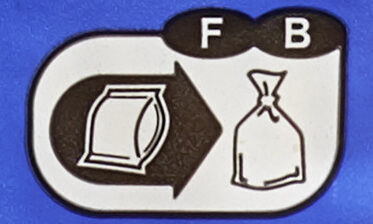Cracker's - Carrefour - 100 g
Aquesta pàgina del producte no està completa. Podeu ajudar a completar-la editant-la i afegint-hi més dades a partir de les fotos ja disponibles, o fent-ne més amb l'aplicació de androide o iPhone / iPad. Gràcies!
×
Algunes de les dades d’aquest producte les ha proporcionat directament el fabricant Carrefour.
Codi de barres: 3560070961092 (EAN / EAN-13)
Nom comú: Biscuits salés.
Quantitat: 100 g
Empaquetament: fr:300 g
Marques: Carrefour
Categories: Snacks, Aperitius salats, Aperitius, Galetes salades, it:plástico
Etiquetes, certificacions, premis: Fet a Espanya, Lliure d'oli de palma
Botigues: Carrefour, carrefour.fr
Matching with your preferences
Altres dades
Condicions de conservació: Conservation : À conserver dans un endroit frais et sec, à l'abri de la lumière. Afin que ces crackers gardent toute leur saveur, nous vous conseillons de les conserver, après ouverture, dans un emballage hermétique. Pour une dégustation optimale, à consommer de préférence avant fin / Nº lot : voir sur le côté de l'étui.
Servei al client: Interdis - TSA 91431 - 91343 MASSY Cedex - France
Report a problem
Fonts de dades
Producte afegit per kiliweb
Última modificació de la pàgina del producte per org-carrefour.
La pàgina del producte, també editada per acuario, cporru, date-limite-app, driveoff, ecoscore-impact-estimator, openfoodfacts-contributors, roboto-app, smoothie-app, tacite-mass-editor, tasja, teolemon.









